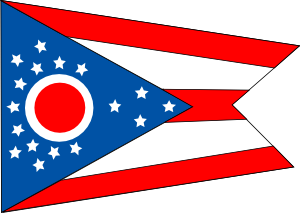On July 20, a federal court ruled the city of Austin’s campaign contribution blackout period unconstitutional. The blackout period allowed officeholders, candidates, and their respective committees to only accept campaign contributions during the last 180 days before an election or […]
 On July 20, a federal court ruled the city of Austin’s campaign contribution blackout period unconstitutional. The blackout period allowed officeholders, candidates, and their respective committees to only accept campaign contributions during the last 180 days before an election or recall election. In Zimmerman v. City of Austin, Texas, the United States District Court for the Western District of Texas, Austin Division, concluded the law was unconstitutional under the First Amendment of the U.S. Constitution.
On July 20, a federal court ruled the city of Austin’s campaign contribution blackout period unconstitutional. The blackout period allowed officeholders, candidates, and their respective committees to only accept campaign contributions during the last 180 days before an election or recall election. In Zimmerman v. City of Austin, Texas, the United States District Court for the Western District of Texas, Austin Division, concluded the law was unconstitutional under the First Amendment of the U.S. Constitution.
In addition, the court found an Austin City Charter provision designating a 90-day requirement for campaign account terminations to be unconstitutional.
District Court Judge Lee Yeakel did uphold the city’s contribution limits for mayoral and city council candidates, finding the limit a constitutional regulation of protected First Amendment activity. The ruling also found City Councilman Don Zimmerman, who originally brought the lawsuit last summer, did not have standing to challenge the aggregate limits of the total contributions a candidate can accept from sources other than natural persons eligible to vote in a postal zip code completely or partially within the Austin city limits.
Photo of Austin, Texas by Eric A. Ellison on Wikimedia Commons.
June 16, 2014 •
Ohio Lawmakers to Introduce Campaign Finance Legislation
Ohio Reps. Nick Celebrezze and Ronald Gerberry announced plans last week to introduce legislation creating a campaign contribution blackout for the attorney general’s office. New legislation would prohibit contributions to the attorney general and to any party-endorsed candidates for the […]
 Ohio Reps. Nick Celebrezze and Ronald Gerberry announced plans last week to introduce legislation creating a campaign contribution blackout for the attorney general’s office. New legislation would prohibit contributions to the attorney general and to any party-endorsed candidates for the office while the office is reviewing bids on contract work.
Ohio Reps. Nick Celebrezze and Ronald Gerberry announced plans last week to introduce legislation creating a campaign contribution blackout for the attorney general’s office. New legislation would prohibit contributions to the attorney general and to any party-endorsed candidates for the office while the office is reviewing bids on contract work.
Celebrezze believes a blackout period will help eliminate the appearance of impropriety. Attorney General Mike DeWine, however, claims enforcement of the blackout periods makes the process inherently more political. Moreover, he said contributions have not influenced his decision to award contract work.
October 19, 2011 •
San Jose Passes Campaign Finance Law
Modifies voluntary campaign expenditure limits and blackout periods
 The San Jose City Council voted unanimously on Tuesday, October 18 to change the city’s campaign finance laws. Changes approved include the elimination of the city’s blackout periods which prohibit campaign contributions within 17 days of a regular election and within seven days of a special election.
The San Jose City Council voted unanimously on Tuesday, October 18 to change the city’s campaign finance laws. Changes approved include the elimination of the city’s blackout periods which prohibit campaign contributions within 17 days of a regular election and within seven days of a special election.
Per the new law, the voluntary candidate campaign expenditure limits will increase from $1.00 per resident per election to $1.25. The rate for mayoral elections will remain the same at $0.75 per resident per election.
Further changes implemented by the new law eliminate an increase in the voluntary expenditure cap triggered by the fundraising efforts of other candidates and independent committees who do not choose to accept the limit.
State and Federal Communications, Inc. provides research and consulting services for government relations professionals on lobbying laws, procurement lobbying laws, political contribution laws in the United States and Canada. Learn more by visiting stateandfed.com.

